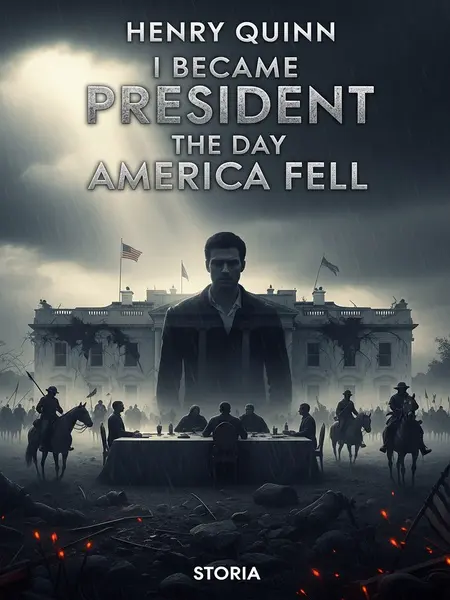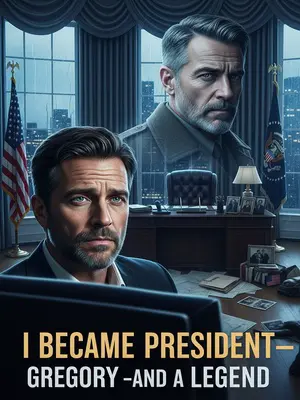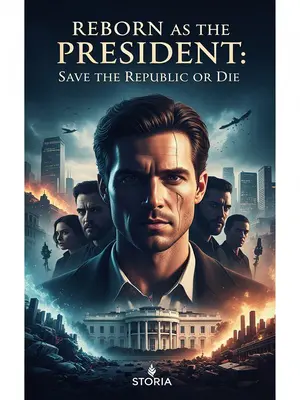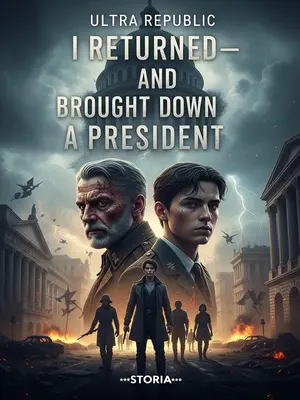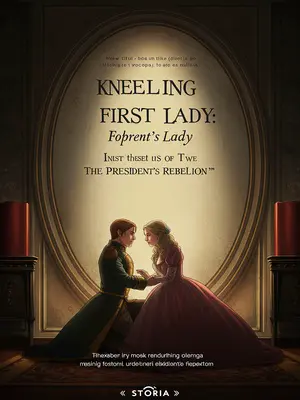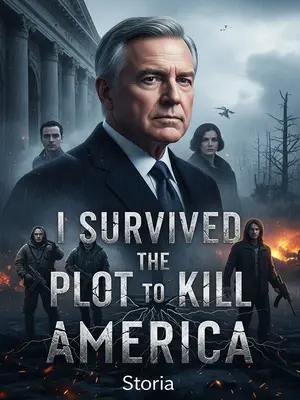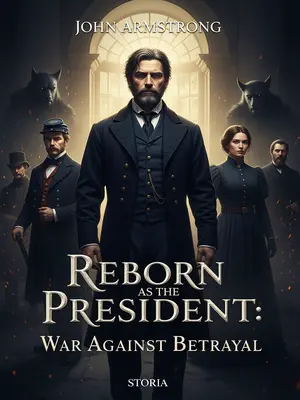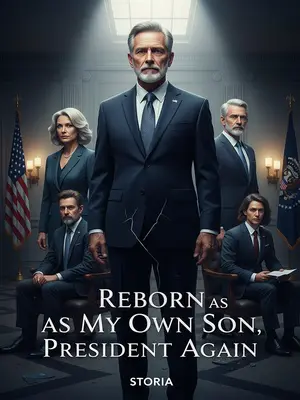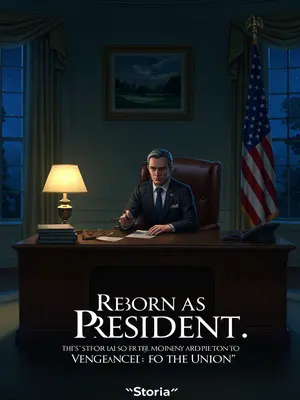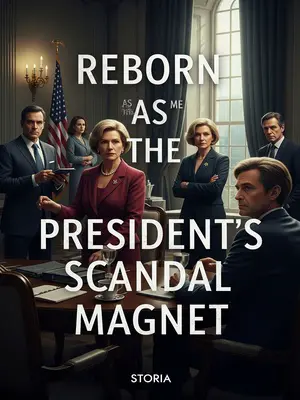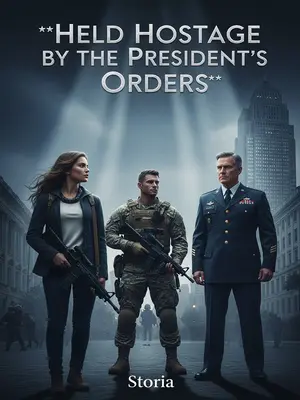Chapter 3: The Last Stand Begins
Year Fourteen of the Liberty Era, September 20th.
A date that would be etched into the nation’s memory—flags already flying at half-staff, the air thick with the weight of history.
Nineteen days had passed since the disaster at Fort Independence.
The shock had faded, but the ache lingered. The city moved slower, the faces on the subway grim, talk radio hosts arguing about blame and hope in equal measure.
The enemy army was closing in.
Satellite images on the nightly news showed their columns winding through cornfields and abandoned highways. Folks in diners across the Midwest whispered, "It won’t be long now."
Councilman Quentin had long since prepared to defend the capital.
His war room was a flurry of activity—maps pinned to corkboards, coffee stains marking late-night strategy sessions, phone lines buzzing as governors called in from distant states.
Before the enemy arrived, Quentin ordered the city gates opened wide, allowing the people to leave as they wished; no one was forced to stay or go.
It was a gamble, but the right one. Cars lined up at gas stations, families piling into minivans with everything they owned. At the same time, diehards—old veterans, stubborn teenagers, shopkeepers—vowed to stay, come hell or high water.
He also opened the federal treasury, recruiting able-bodied men who chose to remain to help defend the city.
The sign-up booths were busy day and night. Kids who’d never fired a gun in their lives lined up next to old-timers with Vietnam tattoos. The city buzzed with a strange, almost festive energy—a last stand mentality.
At the same time, he urgently mobilized two hundred thousand reserves from Ohio and Pennsylvania to reinforce the capital.
Greyhound buses rolled in from the north, National Guard units bivouacked in city parks, the sound of marching boots mixing with the laughter of children too young to understand what was coming.
For a while, the city was alive with military preparations.
Barricades went up, sandbags lined government buildings. Gun shops ran out of ammo by noon, and every deli counter doubled as a rumor mill. People shared sandwiches and stories; some even fell in love—crisis breeds strange bedfellows.
Surprisingly, nearly seventy percent of the people chose to stay and defend the capital to the death.
That stubborn American grit. Even the mayor’s mother refused to leave, standing on her porch with a shotgun across her lap.
Rumor had it that a ninety-year-old elder in the city recounted the old occupation’s atrocities daily in the streets.
He became a legend overnight. Kids gathered around to hear his stories—of ration lines, secret radio broadcasts, and midnight arrests. His words stoked a fire in the hearts of the young.
If the capital fell, there would be nowhere for northerners to go.
The truth was plain: lose here, and the whole country might unravel. That knowledge weighed on every decision.
After all, people can’t outrun horses.
A bitter saying, passed down from old wars. No matter how fast your car, someone on horseback always found you eventually.
By then, Americans would again become slaves, oppressed for generations, a life worth less than a sheep.
Old-timers remembered the humiliation of foreign boots on American soil. They vowed never again.
Hearing this, many passionate men shouted their loyalty and rushed to enlist.
Recruiters barely had time to sleep; by nightfall, their voices were hoarse, but their eyes burned with pride.
These days, Henry spent all his time at the Federal Stables.
He found solace there—the rhythmic sounds of hoofbeats, the easy camaraderie among the riders, the smell of leather and hay.
Inside, besides the stable hands tending the horses, many young officers came to train—most were descendants of civil and military officials.
The stables became a crucible—a place where grief turned to resolve. The sons of senators and generals rode side by side, their differences forgotten for now.
A significant number were sons of generals.
Most of their fathers had died at Fort Independence; even when coming to train here, they wore black armbands, easy to spot.
The black bands were a badge of sorrow and a promise of vengeance. The stables echoed with both laughter and quiet sobs at sunset.
“When the enemy comes, I’ll go out to fight and avenge my father!”
The words rang out like a battle cry. Some even carved their fathers’ names into the butts of their rifles—a quiet vow to the fallen.
“Let’s face life and death together—take down the traitors!”
Their unity was contagious, spreading to even the most reluctant. They spoke with the wild hope of youth and the grim determination of old soldiers.
Looking at these young men whose grief had turned to fury, Henry narrowed his eyes.
He saw his own younger self in them—raw, proud, unbroken. Their anger was a weapon, if he could only hone it.
Since the founding of the Republic, the nation had yet to decay; martial valor was respected, and these young men’s riding, marksmanship, and swordsmanship were excellent—perfect for taking heads on the plains.
He was very satisfied.
He watched them drill at dusk, the dying sun painting the arena gold. The thundering hooves made his heart race—this was where real change would begin.
…
After many days, Henry was truly shocked when he saw Quentin again.
The man was transformed. Gone was the upright, commanding presence; in his place stood someone bowed by worry, eyes rimmed red from lack of sleep. He looked like he’d aged ten years in a week—jacket wrinkled, coffee stains on his cuffs, voice rough as gravel.
The man who had commanded the officials in session more than ten days ago now looked haggard, his hair streaked with white.
A few new wrinkles marked his brow. He’d traded his crisp suit for fatigues, a faded Army cap pulled low.
When he arrived, Quentin was refuting General Stephen Hayes’s proposal to hold the city gates with his troops.
Maps spread out before him, Quentin jabbed a finger at the routes of advance, his voice gravelly with fatigue.
“Our army suffered a crushing defeat at Fort Independence; the enemy’s morale is sky-high. If we retreat behind the walls, aren’t we just showing our weakness? If we want to win, we must meet the enemy outside the nine gates of the capital.”
As he spoke, Quentin’s gaze was sharp as a blade.
His words had the weight of hard-won wisdom. There was no room for cowardice now.
“With the city gates closed behind us and the enemy in front, only by burning our bridges can we steady the army’s heart and keep the enemy out.”
He jabbed the map and growled, "We do what Cortez did—burn the boats. No retreat, no surrender."
Stephen Hayes was speechless, unable to argue further.
He looked down, tapping his pen nervously, conceding the point with a sigh.
Henry couldn’t help but sigh—Quentin was truly a wise statesman; it was a pity he hadn’t fought more wars.
He respected the man’s resolve, even envied it. If only more politicians had that kind of backbone.
Far more reliable than some generals who couldn’t find their way to the battlefield.
He cast a sidelong glance at the assembled officers, some of whom still wore their West Point rings but looked as lost as freshmen on the first day.
“Mr. Quentin, you should take care of yourself—your hair’s turning white.”
Moved, Henry couldn’t help but advise the weary Quentin.
It was half-joke, half-plea: the country needed him sharp, not worn to the bone.
“To serve the country with one’s body—what’s there to regret? I’m over fifty; shouldn’t I have white hair?”
Quentin put down the city defense map, smiling faintly.
His smile was tired but real. The burdens of leadership weighed heavy, but he wore them with grace.
Henry had seen for himself these days—Quentin had worked tirelessly, probably never sleeping well.
Rumor had it he survived on black coffee and the occasional catnap in a leather armchair, always a radio at hand for breaking news.
A true pillar of the state.
A rare breed, Henry thought. America was lucky to have him, for however long it lasted.
With a leader like this, how could that foolish president have lost so badly at Fort Independence?
He felt a surge of indignation.
Henry glanced out at the city walls, thinking: you’d best not come back.
He hoped the defeated would stay far away—America didn’t need any more cowards.
“Mr. Quentin, can I lead troops into battle?”
After some thought, Henry asked eagerly.
The words hung in the air, bold and reckless. In another life, this would have been his natural place—out in front, saber raised.
Quentin stared at him for a long time, his expression complicated, then flatly refused.
His voice was gentle, almost fatherly. “We need you here. Your brother’s already gone; we can’t afford to lose you too.”
Your older brother is still in the hands of the enemy, and you’re still eager to go out and fight?
Do you think one president captured isn’t enough, or do you want to join your brother?
For a moment, he regretted yesterday’s meeting with William Cross and Charles Newton—was it a mistake to bring Samuel Grant in?
He looked away, doubt gnawing at his resolve.
But after thinking it through, there was no one more suitable than Samuel Grant.
He realized that sometimes, circumstances choose the leader, not the other way around.
Mainly because he was the only one left in the capital.
The choices were slim: pick a Grant, or hand the city to chaos.
If they summoned the southern governors north, those men probably wouldn’t dare come.
Nobody wanted their names on a list of martyrs—especially not southern politicians known for hedging their bets.
So, Quentin had no choice but to ask the disappointed Henry, “Do you want to be president?”
Just say the word, and I’ll arrange everything—you’ll be president tomorrow.
The question landed heavy, like a lead weight on Henry’s shoulders. The power, the responsibility, the risk—all bundled together.
Quentin’s willingness to back a new president was born of desperation.
This was no coronation, but a last-ditch play to keep the Republic alive.
Reports from the border said Ethan Black, holding Nathaniel Carter, was using the president to threaten border generals to open the gates.
The news ticked across every wire service, with talking heads debating the ethics of negotiating with traitors.
If Ethan tried that at the capital, morale would collapse.
The danger was real—one wrong move, and the city would fall.
The Republic needed a new president.
Not just a warm body, but a rallying point for a nation on the brink.
Faced with Quentin’s plea, Henry was silent for a long time.
The moment stretched, every tick of the grandfather clock in the hall louder than the last. Eyes watched, breath held.
Be president?
He pictured the Oval Office, the endless stacks of paperwork, the way history judged every action. It didn’t seem like much fun.
President Washington was brilliant, but spent his life trapped in the White House—how dull.
He recalled stories of Washington sneaking out for midnight rides just to feel alive. Henry felt a kinship.
Still not as free as riding a horse for a thousand miles.
He longed for the open road, the wind in his face, the world spread out before him.
But Quentin’s hair was too white, the people of the capital looked anxious, and First Lady Susan’s eyes were nearly blinded from crying.
Those details tugged at something inside him, a sense of duty that wouldn’t let go.
Of course, strictly speaking, he didn’t care about any of that.
A part of him still resented being put in this position—America’s problems were never meant to be his alone.
But it seemed President Washington never managed to drive out all the invaders, nor did his uncle.
He wondered if, given the chance, he could finish what they started.
That must have been their lifelong regret.
Maybe, just maybe, he could give them peace in the next life.
Looks like it was his fault for not finishing the job back then—otherwise, how would there be the humiliation of occupation and the rise of the enemy?
Guilt mixed with ambition. The urge to set things right was overwhelming.
He should have wiped them out completely.
That, he promised himself, he would do now.
How could mere invaders dare act up before him?
He clenched his fists. The Republic would be free, or he’d die trying.
Besides, the Republic was pretty good—except for this foolish president, everything else was to his liking.
He even liked the smell of old books in the Library of Congress, the taste of diner coffee, the sound of jazz on late-night radio.
After thinking it over, Henry agreed, but on one condition: the people and horses of the Federal Stables must obey his orders.
He made his demand with a wry grin—if he was to be president, he’d do it his way.
Quentin’s face darkened, saying all forces in the defense of the capital had to be used for holding the city, not for his games.
His reply was sharp, but Henry wouldn’t back down. They argued for hours, voices echoing down the marble halls.
Henry wouldn’t budge. If you don’t agree, I won’t be president.
In the end, it was a standoff. Quentin gave in—better to have a president than an empty chair.
Quentin was helpless; after all, the Federal Stables only had a thousand or so noble descendants—let him have them.
Let the boy play cavalry—what harm could it do?
Cavalry weren’t needed for defending the city anyway.
Or so he thought. In the new Republic, old tactics often found new life.
The next day, Quentin, First Lady Susan, and others supported Samuel Grant (Henry) as he took the oath of office in the golden hall.
The ceremony was somber—no cheering crowds, just the echo of the oath and the flutter of the flag. Susan dabbed her eyes with a handkerchief; Quentin stood rigid, proud.
He changed the era name from Liberty to Justice. He wanted the headlines to read something new—Justice, not just Liberty. A promise that this time, wrongs would be righted.
From then on, the war hero of Fort Independence, Nathaniel Carter, was no longer the president.
His portrait was quietly removed from the hall, his name struck from the letterhead. History, as always, moved on.
The officials, seeing the new president, found their backbone again; the people in the city also shouted, “Four more years!”
The chant started in the stables, then spread through the markets, then to the barrooms. The city rediscovered its fighting spirit.
But sitting in the Oval Office, Henry felt awkward—no matter how he sat, it was uncomfortable. Just looking at the thick stacks of paperwork gave him a headache.
He shifted in the big leather chair, wishing for a saddle. The stacks of memos, executive orders, and letters from desperate governors threatened to bury him alive.
Back then, why didn’t he realize how hard it was for President Washington to sit in this position?
He felt a pang of empathy for the old man, and a new respect for the burden he’d carried.
Luckily, the cabinet officials were competent.
Cross, Newton, and the rest handled most of the heavy lifting. Henry just had to sign his name in the right places and give the occasional rousing speech.
Henry just muddled through each day; time passed quickly.
He found a strange rhythm—morning briefings, lunch at his desk, afternoons riding at the stables, nights wrestling with strategy.
The day of the enemy’s arrival drew closer and closer.
The city’s pulse quickened. Streets emptied at dusk; church bells rang more often.
The city’s atmosphere grew heavier; Quentin looked more and more haggard.
Shadows gathered in the halls. Aides whispered about evacuation plans; the tension was a physical thing.
All of the capital was shrouded in gloom.
A collective holding of breath. Everyone waited for the storm to break.
---
One morning, when the aide came to wake Henry, he suddenly found the president missing.
The aide’s face turned ghostly pale. He tore through the White House, upending couches, checking bathrooms, panic rising.
He was terrified.
He imagined the headlines: “President Disappears on Eve of Battle.” His hands shook as he dialed Quentin’s number, voice cracking.
Soon, the White House was in chaos.
Secret Service agents swarmed, radios squawked, dogs barked. The entire building bristled with confusion and alarm.
At the same time, beneath the northern gate tower, the gate commander looked at Henry with an ugly expression.
The dawn was crisp and cold; Henry’s breath fogged in the air. The commander’s jaw was set, his hand resting on the hilt of his saber, uncertainty in his eyes.
He was dressed in armor, followed by several hundred cavalry, all wearing black armbands.
They looked every bit the part—grim, determined, united in their purpose. The black bands stood out against gleaming breastplates and dusty boots.
He declared, “I am the president; the president wants to leave the city. If you try to stop me, I’ll have your entire family investigated.”
His voice rang out, carrying over the morning quiet. It was a gamble, but one that worked—mostly.
The cavalry were a little afraid, but also excited.
You could see it in their eyes: some flicked nervous glances at the city walls, others grinned with the wild joy of those who know they’re about to make history.
Afraid that this new president was leading them to their deaths; excited that maybe, this time, they could avenge their fathers and earn honor.
The hope for redemption, for revenge, burned brighter than their fear. In America, you ride for a cause or you don’t ride at all.
But the gate commander refused to open the gate.
His voice trembled, but his feet stayed planted. He was no traitor, not today.
The president could be reckless, but he could not.
Responsibility weighed on him—he had a family, too. The rules mattered, even in chaos.
Helpless, Henry couldn’t really ruin the man’s life, so he had the man tied up and opened the gate himself.
A little bit of Wild West justice, mixed with presidential authority. The cavalry exchanged glances, some nervous, others impressed.
The president personally opening the gate—who would dare stop him?
It became legend almost instantly; by noon, the story was all over the city. “The president’s riding out—just like the old days.”
And so, over eight hundred cavalry rode out from the capital.
Their hooves thundered on the cobblestones, the sun rising behind them. It was the stuff of epic poems and YouTube tributes alike.
Before leaving, Henry left a letter for Quentin.
He scribbled it on White House stationery, sealing it with the presidential seal. It was short, almost flippant, but full of purpose.
When Quentin, furious, arrived, he saw only the tied-up, pale gate commander and the soldiers holding the letter, waiting for him.
The man was still muttering, “I did what I could,” as Quentin snatched the envelope from his hands.
"The enemy is coming, arrogant and wild. They will never expect me to take the initiative. I’m taking people out for a ride—be back soon."
The words were pure Henry—bold, almost cocky, but with a note of reassurance. The last line was a promise.
Take the initiative?
Quentin’s hand trembled, his vision went dark.
For a moment, he felt as old as the Republic itself, crushed by worry.
Unbelievable!
Eight hundred cavalry riding out to face tens of thousands of invaders?
The sheer audacity left him speechless. History would either call this the greatest blunder—or the moment America turned the tide.
Are you and your brother competing to see who can lose more?
Quentin stared at the empty gate, pulse pounding. History was being written—and no one knew if it would end in glory or ruin.
